Zoophthora radicans
Beauveria bassiana
Fungal-infected hoppers are relatively common in wetland rice fields.
Hoppers infected with the fungus Beauveria bassiana (Balsamo) Vuillemin,
family Moniliaceae, become white as the pathogen grows out of the host.
The remains of the dead insect stick to the rice plants in the field.
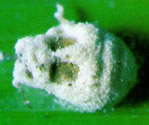 |
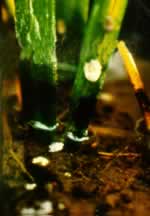 |
|
| The fungus Beauveria bassiana growing out of the host (left) and the remains of infected insects sticking to rice plants in the field (right). | ||
Metarhizium anisopliae
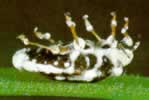 |
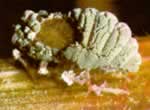 |
|
| Metarhizium anisopliae attacking hoppers and black bugs. | ||
Nomuraea rileyi
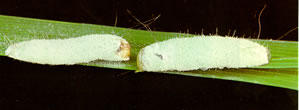 |
| Infected larvae are coated with thick pale green spores. |
Hirsutella citriformis
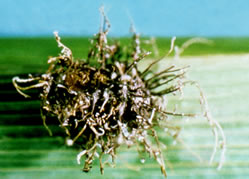 |
| Fungus grows out of the hopper's body as long, hairy, and dirty white filaments. |
Are you ready to review?